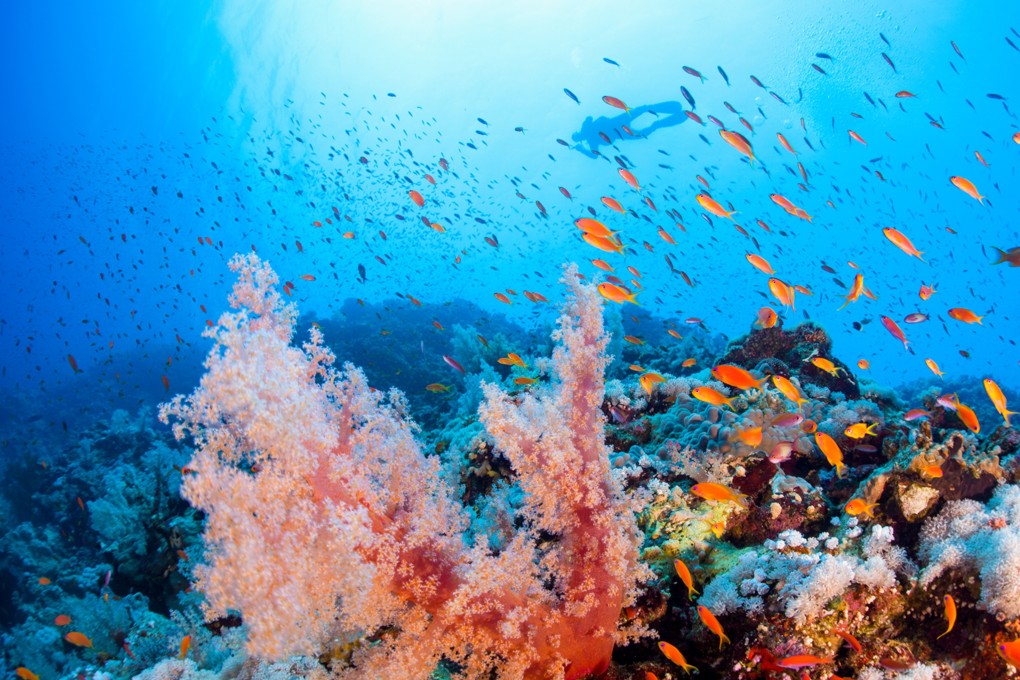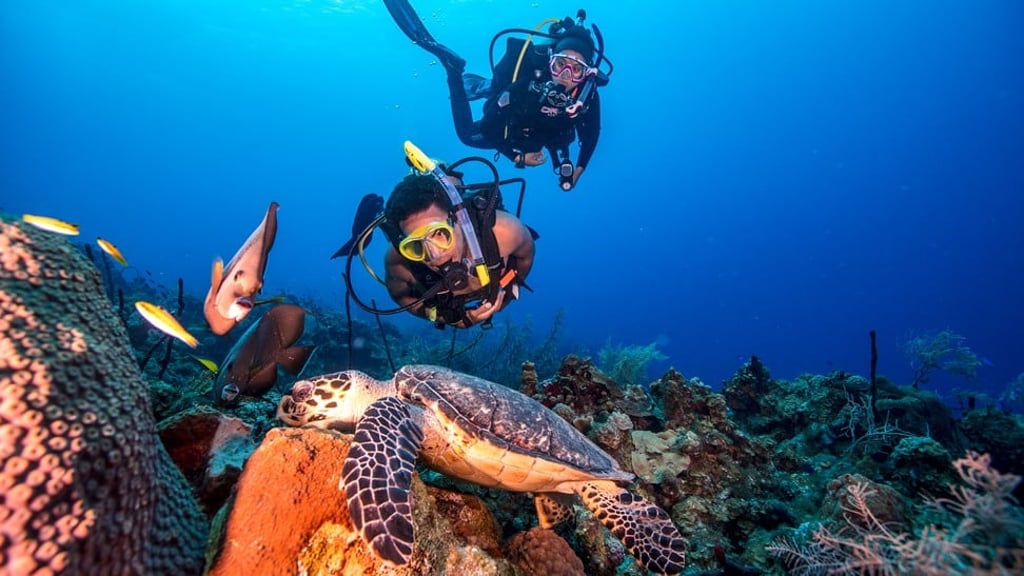How scuba diving can boost mental health and mindfulness, and lower stress – it’s all that deep breathing, and the undersea wonders
- Scuba diving offers people a way to get away from it all, instructors say, and forces you to focus on the here and now
- Many places across Asia – from Hong Kong to the Maldives, Thailand and Indonesia – offer great diving

Sinking into the waters of the Andaman Sea, part of the Indian Ocean to the south of Myanmar (Burma), I focused on the coral to my left rather than the impenetrable blackness on my right.
Divers call it “The Big Blue”, but all I cared was that it wasn’t hiding a big shark. I squinted hard at a nearby clown fish to calm myself down.
It worked. The loud, rhythmic rattle of my breathing, the sensation of weightlessness and the bewitching neon fish darting inches from my face helped to produce a kind of soothing alchemy that only ever occurs under water.
By the time my dive was up 50 minutes later, I was a ball of neoprene-clad bliss.

Research suggests that I am not alone in succumbing to the restorative powers of the ocean. A 2017 study by French institutions found that recreational diving could be more effective at reducing stress and boosting mental well-being than other sports.
The study concluded that the health benefits of diving for leisure include “a decrease in perceived stress and an improvement of multiple psychological factors associated with mindfulness abilities”.
